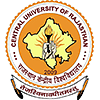CSIR NET syllabus is quite extensive. It is a national-level examination, hence, highly competitive. However, the preparation entirely depends on the candidates. Nevertheless, we have mentioned all the important topics for CSIR NET life science in this article.
Candidates aiming to crack the CSIR UGC NET/ CSIR NET have to prepare well. CSIR NET is a national-level examination conducted by NTA (National Testing Agency) to judge the capabilities of the candidates and appoint them as lecturers in Indian colleges and universities. In addition, candidates are also awarded the Junior Research Fellowship (JRF). Therefore knowing the important topics for CSIR NET life sciences before appearing for the exam is necessary.
Moreover, the candidate clearing CSIR NET can become lecturers only in the subject that fall under the faculty of Science & Technology.
CSIR NET Life Science Overview
CSIR NET Life Science syllabus covers 13 sections, and each section is relevant. Therefore, having knowledge and accuracy about each section is necessary. The question is covered from the entire CSIR NET life science syllabus.
Additionally, the difficulty level is expected to be ranging from moderate to difficult. Hence, implementing a proper CSIR NET life science preparation strategy is necessary.
Important Topics for CSIR NET Life Sciences
The CSIR NET life science covers thirteen important topics. These topics are further divided into sub-topics. All the CSIR NET life science most important topics mentioned below are prescribed by the examination conducting authority.
- Molecules and their Interaction Relevant to Biology
- Cellular OrganisationFundamental Processes
- Cell Communication and Cell Signaling
- Developmental Biology
- System Physiology in Plants
- System Physiology in Animals
- Inheritance Biology
- Diversity of Life Forms
- Ecological Principles
- Evolution and Behaviour
- Applied Biology
- Methods in Biology
CSIR NET Life Science Study Material & Books
Candidates often suffer from the dilemma of which book to follow that covers all the important topics for CSIR NET life science. Therefore, to solve this problem and make the search process more accessible, we have curated and listed all the books. These are the best CSIR NET life science books for preparation:
| Books | Authors/ Publishers |
| Biochemistry | |
| Lehninger Principles of Biochemistry | David L. Nelson and Michael M. Cox |
| Principles of Biochemistry | Voet, Pratt, and Voet |
| Biochemistry: International Edition | Stryer, Berg and Tymoczko |
| Enzymes | Palmer |
| Theory and Problems of Biochemistry | Kuchel |
| Biochemistry (Instant notes) | Hames & Hooper |
| Genetics | |
| Principles of Genetics | Tamarin |
| Principles of Genetics | D. Peter Snustad and Michael J Simmons |
| Principles of gene manipulations | Sandy B Primrose Dr. Richard Twyman |
| Genetics: A Conceptual Approach | Benjamin A. Pierce |
| Genetics: Principles and Analysis | Daniel L Hartl and Elizabeth W. Jones |
| Genetics: Analysis of Gene and Genomes | Hartl & Ruvolo |
| Genetics | BD Singh |
| Concept of Genetics | William S. Klug |
| Cell and Molecular Biology | |
| Cell and Molecular Biology: Concepts and Experiments | Gerald Karp |
| The Cell: A Molecular Approach | Geoffrey M. Cooper, and Robert E. Hausman |
| Cell And Molecular Biology / 8th Edition | Robertis De |
| Cell Biology | C. B. Powar |
| Theory and problems of Molecular and Cell Biology | Stansfield |
| Molecular Biology of the Gene | James D. Watson |
| Molecular Biology of Cells | B. Alberts, D. Bray |
| Immunology | |
| Immunology | Kuby/ Lydyard/ Pinchuk |
| Essential Immunology | Ivan M. Roitt |
| Developmental Biology | |
| Principles of Development 5e | Martinez Arias Wolpert and Tickle |
| Developmental Biology | Scott F. Gilbert |
| Plant Physiology | |
| Plants Physiology | Lincoln Taiz and Eduardo Zeiger/ Ross and Salisbury |
| Animal Physiology | |
| Ganong’s Review of Medical Physiology | - |
| Essentials of Animal Physiology | Rastogi |
| Principles of Animal Physiology | Christopher D. Moyes and Patricia M. Schulte |
| Schaum's Outline of Human Anatomy and Physiology, Third Edition (Schaums Outline Series) | - |
| Ecology | |
| Ecology and Environment | PD Sharma |
| Basic Ecology: Fundamentals of Ecology | Eugene P. Odum |
| Ecology: Principles And Applications | JL Chapman and MJ Reiss |
| Elements of Ecology | Smith & Smith |
| Methods in Biology | |
| Biophysical Chemistry (Principles and Techniques) | Upadhyay |
| Principles and Techniques of Biochemistry and Molecular Biology | Wilson and Walker |
| Applied Biology | |
| Principles of Fermentation Technology | Stanbury |
| Genomes 3 | T.A. Brown |
| Plant Breeding Principles & Methods | B.D. Singh |
| Introduction To Plant Tissue Culture | Razdan MK |
| Recombinant DNA Technology | |
| Principles of Gene Manipulation and Genomics | Sandy B. Primrose and Richard Twyman |
| Gene Cloning and DNA Analysis | TA Brown |
| Molecular Cloning: A Laboratory Manual | Joseph Sambrook and David Russell |
| Molecular Biotechnology: Principles and Applications of Recombinant DNA | Bernard R. Glick and Jack J. Pasternak |
| Microbiology | |
| Microbiology | Prescott/ Pelczar/ Tortora/ Baker |
| Brock Biology of Microorganisms | Madigan |
| Bioinformatics | |
| Bioinformatics | Baevanis & Oullette/ Hodgman |
| Introduction to Bioinformatics | Lesk |
How to Prepare for the Most Important Topics for CSIR NET Life Sciences?
The syllabus for CSIR NET life science is not rigid. However, with the proper amount of concentration and hardworking effort, any candidate can easily crack it. The only thing that must be kept in mind is to holistically follow the syllabus and the important topics for CSIR NET life sciences. In addition, few steps can be followed to get success:
- Create a timetable: An essential step to crack CSIR NET life science's most important topic is structure a proper timetable. Devote ample time to each topic. Make sure no pages are untouched. Cover all the syllabus on time. Stick to the timetable.
- Jott Down the Important Points: Making notes and marking the important topics for CSIR NET life sciences. It will not only help in preparation but also help in revising. It is always easier to look through the points when last-minute preparation is going on.
- Follow the Authentic Books: There are plenty of books available online and in the market that promise to help crack the CSIR NET life science, but not all are trustworthy. Thus, finding the correct book covering all the most important topics for CSIR NET life sciences is difficult. Therefore, for the benefit of the candidates, we have mentioned all the books recommended by the toppers.
- Follow the Previous Years' Question Papers: Candidates should follow the previous year's question papers. It will give a thorough idea of which topics need attention. It will help in gauging the frequency of questions from each CSIR NET life science most important topic.
- Revise: After each topic is covered, it is mandatory to revise the same. Moreover, when a substantial amount of topic is covered, it is necessary to take mock questions/ tests as a part of the revision. It will analyse the preparation depth.
Knowing all the important topics while preparing for exams such as CSIR NET is crucial. With an accurate and sharp understanding of the topic, candidates can start their preparation and achieve success. In addition, if the techniques and tips are followed strictly, cracking the exam will be a cakewalk.


















